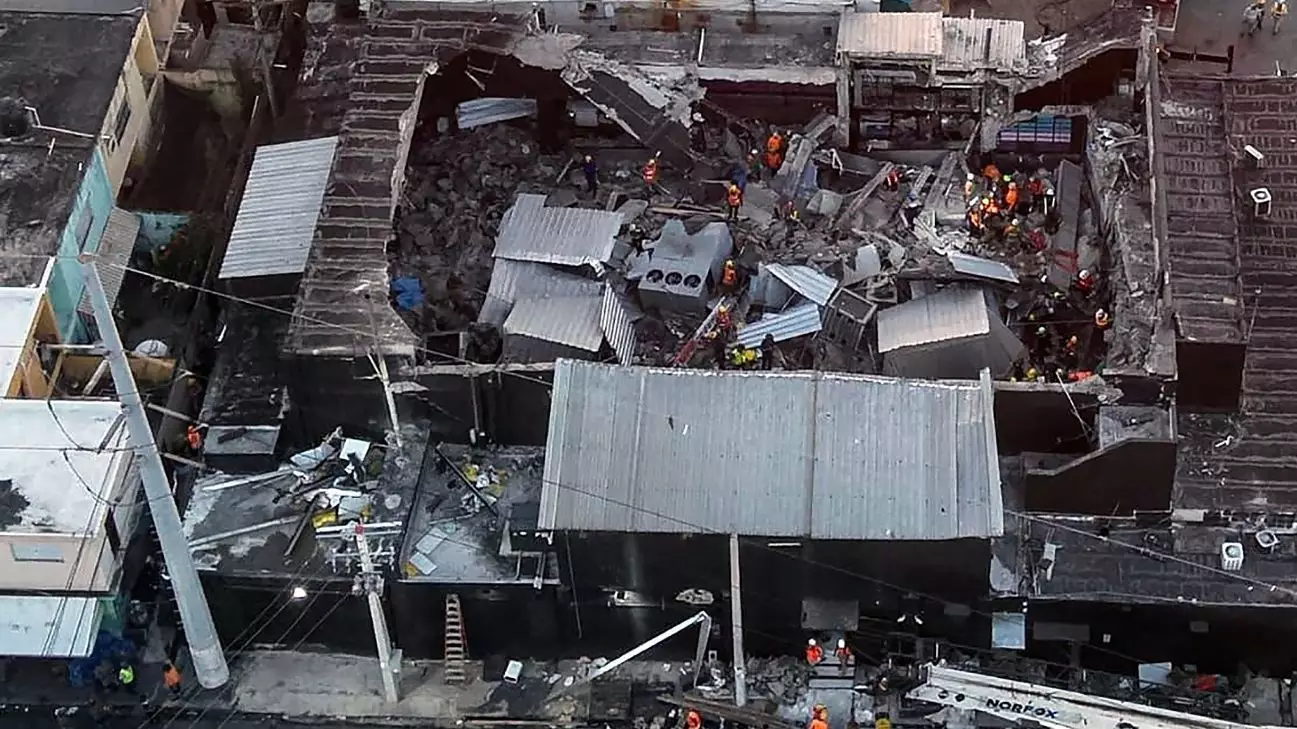In a profound and heart-wrenching twist of fate, a festive night in Santo Domingo became a scene of unimaginable tragedy when the roof of the Jet Set nightclub, a popular venue known for hosting vibrant merengue concerts, collapsed early on a Tuesday morning. The collapse resulted in the heartbreaking loss of over 70 lives, including prominent figures in the baseball community. Among the deceased were former Major Leaguers Octavio Dotel and Tony Blanco, as well as Nelsy Cruz, the governor of Monte Cristi and the sister of MLB All-Star Nelson Cruz. This catastrophic event serves as a stark reminder of the fragility of life and how swiftly joy can turn into sorrow.
The collapse occurred around 1 a.m., engulfing party-goers in a horrific, chaotic scene. A concert that was intended to bring joy instead led to one of the deadliest moments in the recent history of the Dominican Republic. As attendees danced and celebrated, no one could have foreseen that the structure above them would betray their trust. The immediate aftermath was frantic; rescuers scrambled to reach victims trapped beneath tons of debris, desperately hoping for survivors amidst the ruins of what was supposed to be a night of fun.
The Loss of Sporting Legends
The sports community has been devastated by the news of both Dotel and Blanco’s untimely deaths. Octavio Dotel, known for his dynamic presence on the mound, had a rich career that spanned across 15 seasons and 13 teams, racking up 109 saves and contributing to a World Series victory with the St. Louis Cardinals in 2011. Dotel’s global recognition in the realm of professional baseball extends beyond his statistics; he represented hope for many young Dominican athletes who dream of making it big in the sport.
Tony Blanco, though his major league exposure was brief, offered a powerful testament to determination and perseverance. With a career that stretched from 2000 to 2008 and included playing time in Japan and the Dominican Republic after his stint in the MLB, Blanco left an indelible mark on those around him. The loss of both men underscores a potent truth: that their legacies, while anchored in baseball, built connections that transcended the sport.
Community in Mourning
The Dominican Republic has long been a haven for baseball talent, producing world-class players admired globally. In light of these tragedies, Major League Baseball (MLB) has expressed profound sorrow over the losses, with Commissioner Rob Manfred conveying heartfelt condolences to the families affected. The statement not only reflects the grief felt by those within baseball but also unites the community in a shared moment of mourning.
Equally, the MLB Players Association stood in solidarity with the Dominican community, resonating with the tragic reality that life is exceptionally unpredictable. The emotion and support echoed by Tony Clark, the executive director of the union, highlighted the collective impact on both the families of the deceased and the broader baseball fraternity. As social media platforms filled with messages of remembrance and love, it became clear that these losses are being felt deeply across borders. The support not only honors the memories of Dotel and Blanco but also reinforces the tight-knit nature of the sports community.
The Immediate Response and Investigation
As rescue efforts unfolded throughout the day, a glimmer of hope persisted. Early reports suggest that approximately 160 individuals sustained injuries, with search and rescue teams tirelessly working to excavate those still trapped. Dominican President Luis Abinader remained on-site, assuring the public that rescue agencies were wholly committed to the recovery efforts. The event’s harrowing nature raises urgent questions regarding safety standards and building regulations in the country, particularly for venues that regularly host large gatherings.
What caused the roof to collapse remains under investigation, but the tragedy underscores critical discussions about structural integrity and the necessary precautions that should be in place to safeguard public spaces. The haunting final plea for help from Nelsy Cruz, who tragically perished after alerting authorities of her precarious situation, intensifies the narrative of loss and serves as a poignant reminder of the human side of statistics.
In the aftermath of such a calamity, the community is left to grapple with profound grief, seeking answers while also coming together to support one another through unimaginable heartache. The losses resonate past the confines of the nightclub; they signify a broader reality that life can change in the blink of an eye, demanding resilience, empathy, and often, actionable reform to ensure safety and security in public venues.


Leave a Reply